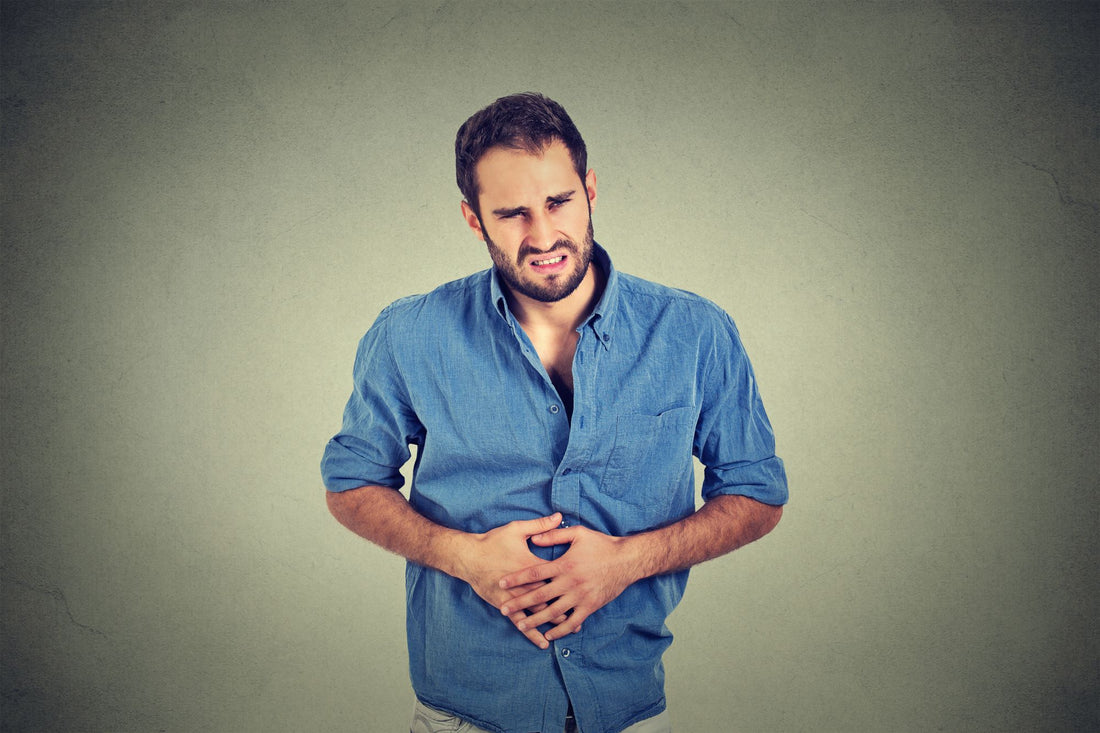Gas.
We all experience it, but no one likes to talk about it.
Flatulence can be embarrassing and uncomfortable, but it is a normal bodily function that everyone experiences. Understanding what happens when someone experiences gas or flatulence can help you learn ways to prevent it from happening in the future.
So, what’s really going on when you pass gas? Let’s look at the science behind this natural occurrence.
What Causes Gas?
Gas is created when bacteria in the large intestine breaks down food that has not been completely digested by the small intestine. This process produces hydrogen, carbon dioxide, and methane gases. These gases are then expelled either through the mouth (burping) or through the rectum (flatulence). The amount of gas produced depends on a variety of individual factors like diet, age, medications taken, activity level, etc.
There are certain foods that are more likely to cause gas and bloating, such as beans, broccoli, cabbage, and fried foods. High-fiber foods like beans, lentils, fruits, vegetables, and whole grains tend to produce more gas than other types of foods because they contain complex carbohydrates that are harder for your body to digest. Additionally, certain artificial sweeteners like sorbitol can also cause excessive gas since they are difficult for your body to break down.
If you find that these foods cause you discomfort, try avoiding them or eating them in smaller quantities
Ways to Reduce Gas & Flatulence
The best way to reduce excess gas is to make changes in your diet. If you frequently experience bloating or abdominal pain after eating certain foods, then try reducing or eliminating them from your diet altogether. Eating smaller meals throughout the day instead of one large meal can also reduce gas production since it gives your body time to digest each meal before moving onto the next one.
Other tips include avoiding drinking too much with meals. This can lead to overeating. Speaking of drinking, plenty of water throughout the day helps keep stools soft and result in less gas.
Exercise
Regular exercise can be a great way to help reduce the amount of excess gas we produce. Studies have shown that exercising can help decrease the amount of air we swallow, leading to less air reaching our digestive tract. Additionally, regular exercise has been found to improve muscle tone in the intestines which allows food to move more efficiently through the digestive system and keep us feeling regular. Ultimately, taking part in regular physical activity such as walking, running, or swimming is an excellent way to reduce excess gas production and maintain a healthy digestive system.
Medications and Supplements
Taking medications that help reduce excess gas production can offer significant relief from the discomfort caused by severe bloating. These medications work by breaking down certain types of carbohydrates, primarily via enzymes and probiotic bacteria, to make them easier to digest. In some cases, individuals may need a combination of medications to achieve the best outcome. For instance, one medication may be used to target proteins while another medication is taken to tackle complex starches and polysaccharides. Ultimately, taking medications designed to reduce excess gas production can lead to an increase in quality of life and improve symptoms related to excessive air digestion and bloating.
Many people prefer to avoid medications in favor of more natural options, like some supplements. Supplements formulated specifically for reducing gas production can offer a safe and effective way of addressing this issue. They are composed of ingredients such as enzymes that help break down carbohydrates during digestion. This often includes probiotics for settling the gut bacteria balance.
Some supplements also combine multiple functional ingredients in one pill, making it even more convenient to quickly reduce excess gas production and enjoy improved digestive health overall. Take AlchemLife’s Phytocid-GT® supplement for example. Phytocid-GT® combines ginger and turmeric to treat stomach issues, like excess gas.
Gas may be embarrassing, but it does not have to be!
By understanding what happens when someone experiences gas or flatulence we can better understand how to prevent it from happening in the future. Making simple changes such as eating smaller meals throughout the day and increasing physical activity can go a long way towards reducing excess gas production in our bodies. If you find yourself still struggling with persistent bloating or abdominal pain then make sure to contact a doctor for professional medical advice!

